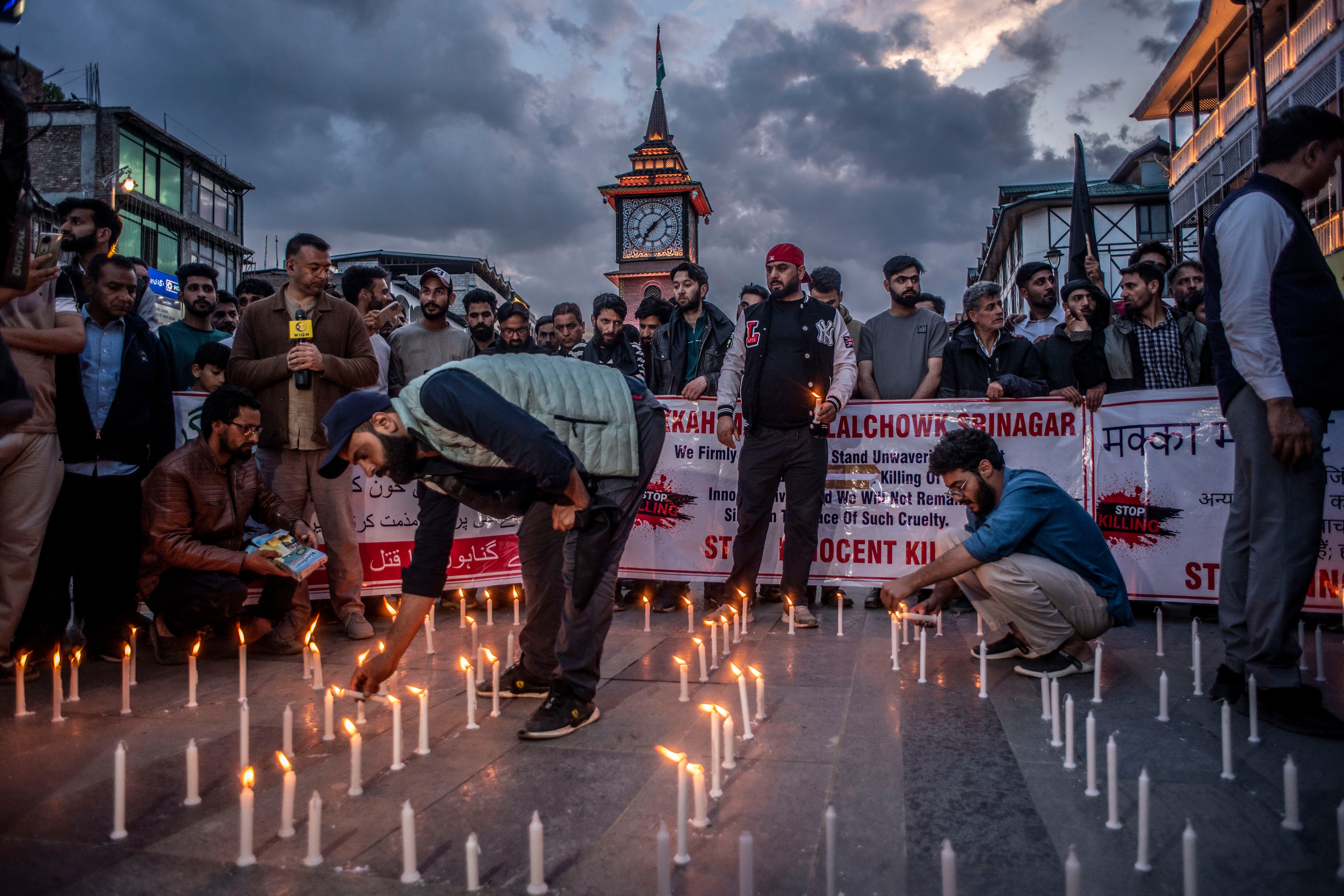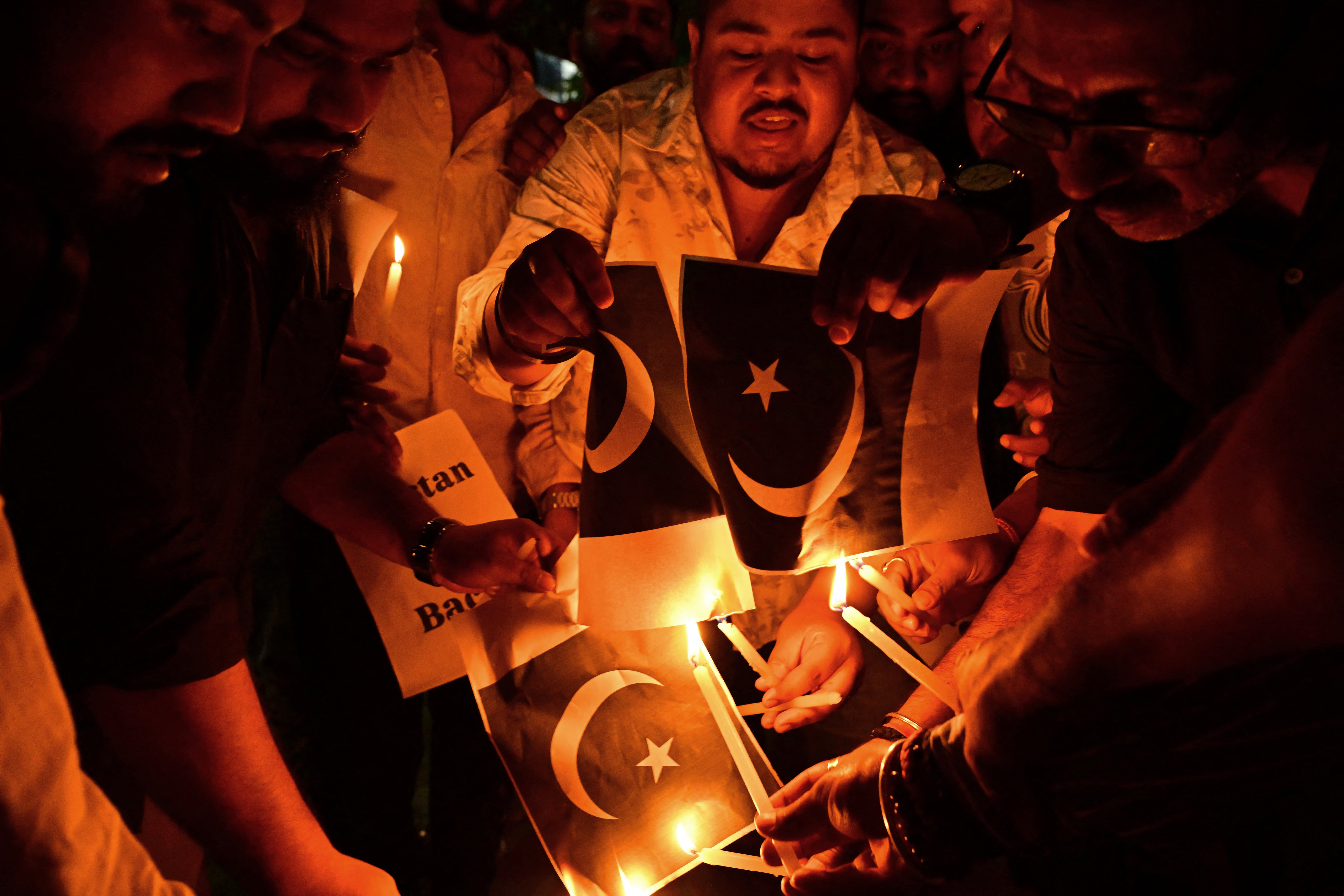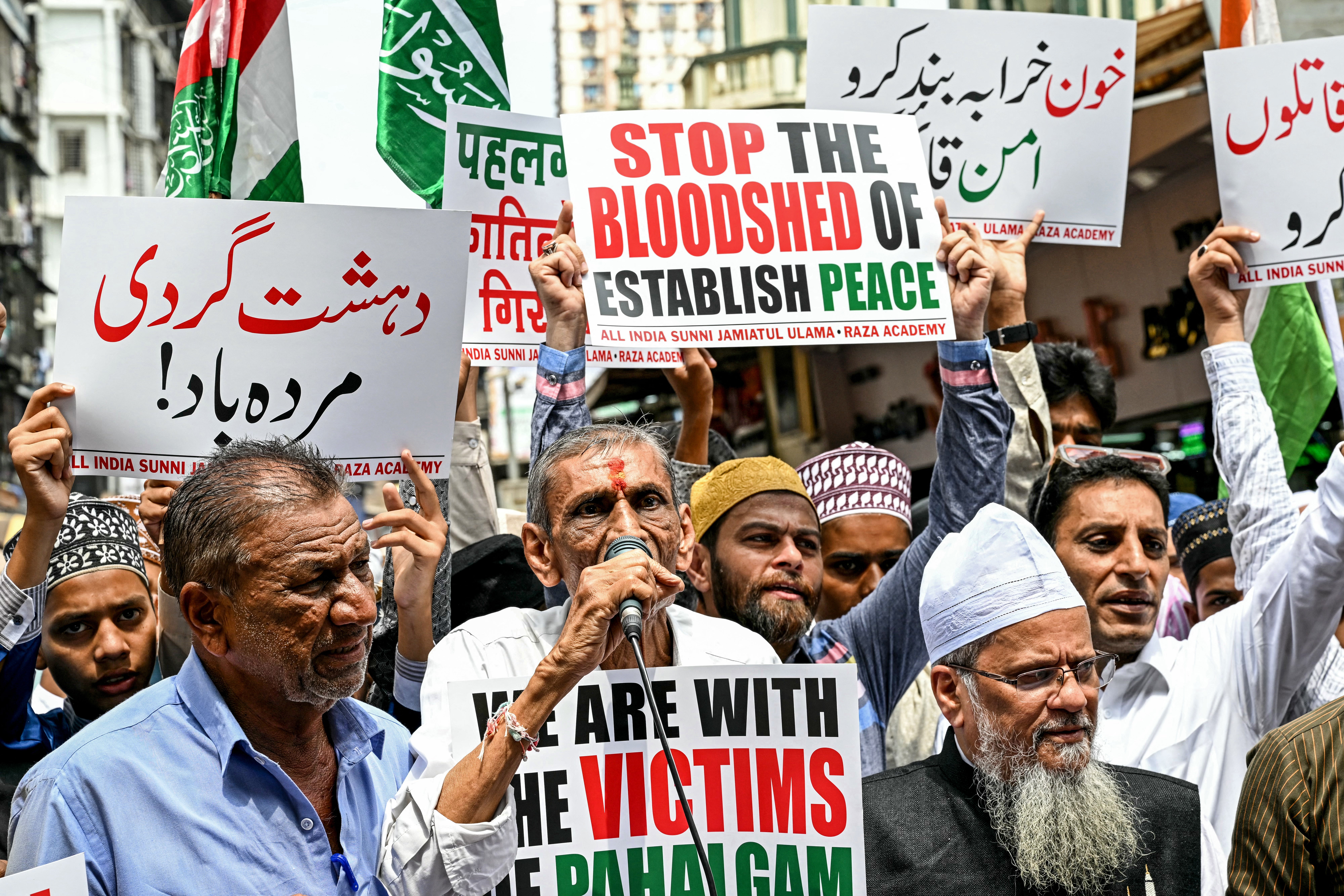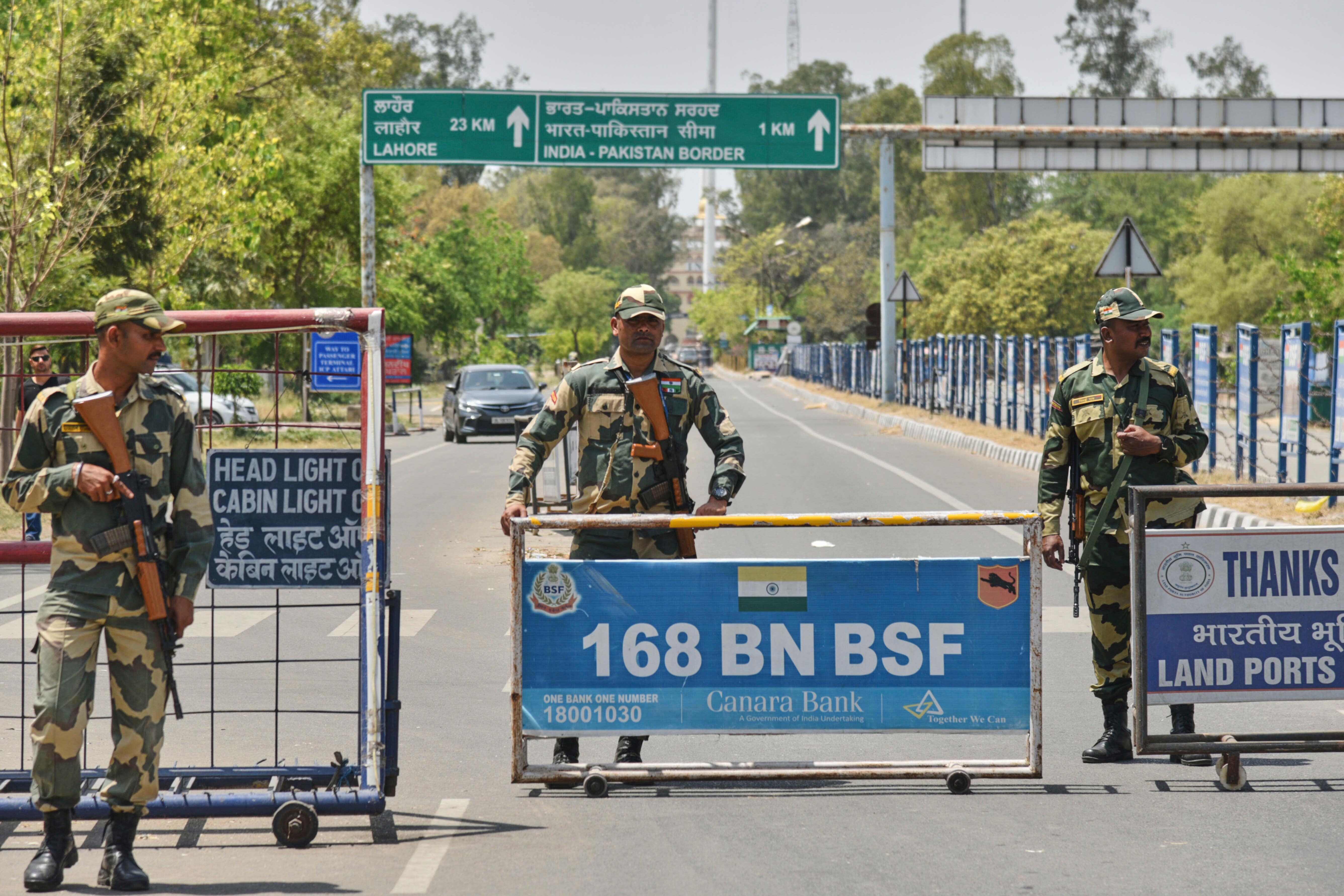India and Pakistan: The nuclear standoff that we really should all be worried about
As tensions between the two countries escalate following a terrorist attack in Kashmir, Ashis Ray looks at how a conflict could involve China and the US in a war over sovereignty and security


Tourism is Indian-controlled Kashmir’s lifeline, but after 26 innocent Hindu visitors on holiday were gunned down by terrorists in Pahalgam, one of its most beautiful locations, panic-stricken visitors emptied out of its majestic mountains, lush valleys and mesmeric lakes.
A military move by India against Pakistan – both armed with nuclear arsenals – to avenge the deaths has now followed.
India said it hit nine alleged militant headquarters or hideouts in Pakistan and Pakistan-administered Kashmir. Pakistan has claimed that 26 people have been killed and more than 40 injured in air-to-ground missile strikes. It also said it has downed five Indian military aircraft. There are also casualties on the Indian side caused by shelling from Pakistan.
Narendra Modi, a Hindu hardliner and head of a coalition regime in India, where 80 per cent of the population are Hindus, vowed revenge not merely against the perpetrators, but their “backers” – code for Pakistan, India’s western neighbour and an Islamic republic. India believes two of the three gunmen involved in the shooting were Pakistanis, while Islamabad denies any role in the incident and has called for an international investigation.
But the Indian public is in a bloodthirsty mood. Jingoistic anchors and guests on their television news channels were in a mode of unbridled warmongering. In 2019, after a suicide bomber acting on behalf of the Pakistan-based terrorist organisation Jaish-e-Mohammed killed 40 Indian paramilitary personnel in Pulwama, also in Kashmir, Modi retaliated with air strikes on a perceived terrorist training camp in Pakistan.
Srinath Raghavan, a professor at India’s Ashoka University and author of War and Peace in Modern India, recently said: “I don’t see how the government can walk away in the face of such a serious attack and not carry out actions at least at that level of threshold.”
In 2019, satellite images revealed that Modi’s bombardment failed to hit any target of consequence. In a resultant dogfight between the two air forces, Pakistan, in fact, got the better of India by not only knocking down an Indian fighter plane but also capturing its pilot, who bailed out over Pakistan-controlled territory.
Mike Pompeo, the US secretary of state at the time, wrote in his memoir that the world doesn’t properly know “just how close the India-Pakistan rivalry came to spilling over into a nuclear conflagration in February 2019”.
Inherent in an Indo-Pak conflict is the likelihood of superpower rivals China and the US backing opposite sides in a Cold War-type confrontation.

A former US state department spokesman, Ned Price, told Reuters: “If India feels that the Trump administration will back it to the hilt no matter what, we could be in for more escalation and more violence between these nuclear-armed neighbours.” After a meeting in Delhi last week to discuss trade and security, JD Vance warned that the 21st century could be a “very dark time for all humanity” if the countries fail to cooperate. Vance was pitching for the US to supply more military equipment to India, which has previously relied on Russian-made military supplies. “In India, America has a friend,” he said. “And we seek to strengthen the warm bonds our great nations already share. This is very much a win-win partnership.”
Meanwhile, the Chinese news agency Xinhua quoted its foreign minister, Wang Yi, as saying, China “supports Pakistan in safeguarding its sovereignty and security interests”.
Pravin Sawhney, an Indian defence analyst, posted on X: “It is a triangular security matrix in South Asia where the PLA (China’s People’s Liberation Army) will support Pakistan military with its massive non-kinetic capabilities & regular supply of spares, ammunitions, missiles & so on … Indian military will not have this war-winning advantage. Moreover, there will be non-attributable PLA cyber fires in warzone & electronic fires in combat zone. PLA will help Pakistan military maintain superiority in the electromagnetic spectrum.”

Furthermore, a number of Turkish C-130 military transport aircraft, carrying undisclosed combat equipment, have reportedly landed in Pakistan, suggesting Ankara, too, may close ranks with Islamabad.
In February, a former director general of the Pakistan Army’s espionage wing, Inter-Services Intelligence, said the Pakistan Army was furious about India’s alleged support for the Afghanistan-based anti-Pakistan outfit known as Tehrik-i-Taliban Pakistan and for separatists in the western Pakistani province of Balochistan. An ambush of a Quetta to Peshawar train by Baloch nationalists on 11 March set tongues wagging in Pakistan that the powers that be were not going to let this go.
That was escalated on 15 April with a speech by Pakistan’s chief of army staff, General Asim Munir, which reflected an unprofessional hatred of India and Hindus. Since 1958, the Pakistan Army has either brazenly or from behind the scenes controlled the country. Seemingly, Indian intelligence either did not decipher the Pakistani mood or mistakenly ignored it.

On 9 April, the Indian home affairs minister Amit Shah boasted: “The Modi government’s sustained and coordinated efforts have crippled the entire terror ecosystem nurtured by hostile elements in Jammu and Kashmir.” If that were true, why would there be a need to maintain security forces in the region numbering nearly a million?
In 1989, Pakistan – as recompense for its eastern wing being severed from it and converted into an independent Bangladesh in a humiliating defeat to India in 1971 – began infiltrating Indian Kashmir, which has a Muslim majority, with Pakistan-based militants. India started returning the compliment in the 1990s. The tit-for-tat cycle of violence continued with Pakistani terrorists murdering around 165 people, including one Briton, in the Indian metropolis of Mumbai in 2008.

On Indian Independence Day in 2016, Modi strangely claimed: “In the last few days, people of Balochistan … have thanked me, have expressed gratitude, and expressed good wishes for me.” This gave Pakistan ammunition to accuse India of fuelling secession in the Pakistani province. In short, the trading of terrorism in the Indian subcontinent has not been a one-way street, although it would be fair to say Pakistan has been the more culpable party.
After initially signalling it was behind the Pahalgam atrocity, “The Resistance Front” group has since “unequivocally” denied involvement. If, though, a Pakistan-based non-state organisation engineered the killings of innocent civilians, the onus is still on Pakistan to act against such an entity.
At the same time, Modi needs to present credible evidence to the international community about the Pakistani state itself being involved in the outrage to earn legitimacy for a cross-border operation. As the threat of escalation looms and the geopolitical landscape shifts, the anxiety is that the fragile peace Kashmir has achieved could descend into a conflict of our worst imaginations.
Join our commenting forum
Join thought-provoking conversations, follow other Independent readers and see their replies
Comments

Bookmark popover
Removed from bookmarks